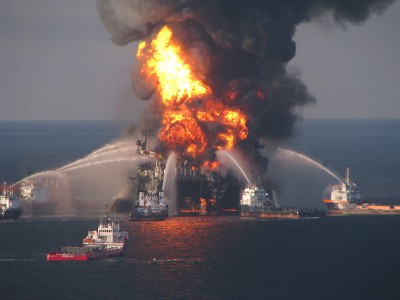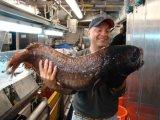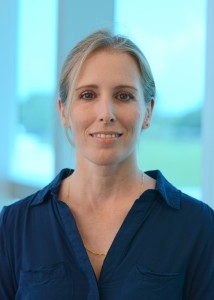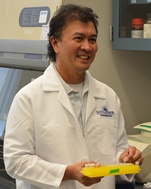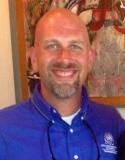NSU Newsroom
SharkBytes
Horizons
This version of NSU News has been archived as of February 28, 2019. To search through archived articles, visit nova.edu/search. To access the new version of NSU News, visit news.nova.edu.
This version of SharkBytes has been archived as of February 28, 2019. To search through archived articles, visit nova.edu/search. To access the new version of SharkBytes, visit sharkbytes.nova.edu.
New Hollywood Blockbuster Puts Deepwater Horizon Tragedy Back in the Spotlight
NSU Home to Experts Researching Tragedy's Impact on Environment
FOR IMMEDIATE RELEASE
FORT LAUDERDALE/DAVIE, Fla. – Hollywood’s latest blockbuster focuses on the 2010 Deepwater Horizon oil spill, where 11 people lost their lives and an estimated 4.9 million barrels of oil were discharged into the Gulf of Mexico. While the movie will focus on the events that transpired that resulted in the tragedy, the long-term effects of having 210 million gallons of oil – in addition to dispersants – introduced into the Gulf of Mexico at one time are still being studied.
And that’s where Nova Southeastern University (NSU) comes in.
Research scientists at NSU’s Halmos College of Natural Sciences and Oceanography have been studying various aspects of the Gulf of Mexico ecosystem – from how exposure to oils/hydrocarbons effects coral reefs to gathering data on the myriad of life that calls the waters home (including those at depths of more than 1,500 meters.) One thing that was clear in the aftermath of the spill was there was a dearth of information about the marine environment – it showed that there was much more we needed to learn. And for the past few years, that is exactly what NSU research scientists have been doing.
Below is brief information about NSU’s Subject Matter Experts – all are available to speak with media interested in doing stories related to the science research related to the Deepwater Horizon oil spill:
Tracey Sutton, Ph.D., is an NSU associate professor, director and principal investigator of the Deep Pelagic Nekton Dynamics (DEEPEND) Consortium within the Gulf of Mexico Research Initiative (GoMRI). Dr. Sutton’s work in this area focuses on the ecology of organisms living in the deep Gulf interior, and how these organisms may have been affected by the Deepwater Horizon oil spill. This work, currently ongoing, is an extension of work initiated shortly after the oil spill in 2010 at the request of the National Oceanic and Atmospheric Administration (NOAA).
Abigail Renegar, Ph.D., is an NSU research scientist and co-principal investigator of the Clean Caribbean and Americas CoralTox project with Richard Dodge, Ph.D., dean of NSU’s Halmos College. Dr. Renegar is currently researching hydrocarbon toxicity in shallow water corals, providing much needed data on coral resilience to hydrocarbon exposure. Renegar is also co-principal investigator of the GoMRI project DeTOX, which is focused on understanding potential toxic effects of oil and dispersed oil in several ecologically important deep-sea zooplankton/micronekton species.
Jose Lopez, Ph.D., an NSU professor whose focus is on molecular biology, systematics and microbiological research on various marine invertebrates, including corals, marine sponges and their symbiotic microbes. Dr. Lopez is also with a co-principal investigator of the DEEPEND Consortium. The microbial genomics group of DEEPEND is working to characterize microbial communities (“microbiomes”) to indicate potential baseline profiles in the absence of huge hydrocarbon pulses usin high-throughput DNA and RNA sequencing methods. Besides community membership, functional aspects of the microbial community will be addressed by applying metagenomics, statistics and advanced in silico approaches for a better understanding of marine microbiome linkages to the Gulf of Mexico oceanographic feature.
David Kerstetter, Ph.D., is an NSU assistant professor and research scientist, focusing on fisheries science. This is the discipline of managing and understanding the harvesting of aquatic species, including finfish. It is a multidisciplinary field, which draws on aspects of oceanography, ecology, engineering, ichthyology, socio-economics, and management to provide an integrated picture of fisheries and their effects on the environment. Fisheries research at NSU’s Halmos College of Natural Sciences and Oceanography has historically focused on the commercially and recreationally important coastal and pelagic fishes, including billfish, tunas, and swordfish. More recently, the fisheries laboratory has engaged in alternative fishing gear outreach programs in Turkey, Morocco, and the Gulf of Mexico, in addition to expanding research on local seabird ecology and their interactions with Southeastern Florida fisheries.
Be sure to sign up for NSU’s RSS feed so you don’t miss any of our news releases, guest editorials and other announcements. Please sign up HERE.
###
About Nova Southeastern University (NSU): Located in beautiful Fort Lauderdale, Florida, Nova Southeastern University (NSU) is a dynamic research institution dedicated to providing high-quality educational programs at the undergraduate, graduate, and first-professional degree levels. A private, not-for-profit institution, NSU has campuses in Fort Lauderdale, Fort Myers, Jacksonville, Miami, Miramar, Orlando, Palm Beach, and Tampa, Florida, as well as San Juan, Puerto Rico, while maintaining a presence online globally. For more than 50 years, NSU has been awarding degrees in a wide range of fields, while fostering groundbreaking research and an impactful commitment to community. Classified as a research university with “high research activity” by the Carnegie Foundation for the Advancement of Teaching, NSU is 1 of only 50 universities nationwide to also be awarded Carnegie’s Community Engagement Classification, and is also the largest private, not-for-profit institution in the United States that meets the U.S. Department of Education’s criteria as a Hispanic-serving Institution. Please visit www.nova.edu for more information about NSU and realizingpotential.nova.edu for more information on the largest fundraising campaign in NSU history.
About NSU’s Halmos College of Natural Sciences and Oceanography: The college provides high-quality undergraduate (bachelor’s degree) and graduate (master’s and doctoral degrees and certificates) education programs in a broad range of disciplines, including marine sciences, mathematics, biophysics, and chemistry. Researchers carry out innovative basic and applied research programs in coral reef biology, ecology, and geology; fish biology, ecology, and conservation; shark and billfish ecology; fisheries science; deep-sea organismal biology and ecology; invertebrate and vertebrate genomics, genetics, molecular ecology, and evolution; microbiology; biodiversity; observation and modeling of large-scale ocean circulation, coastal dynamics, and ocean atmosphere coupling; benthic habitat mapping; biodiversity; histology; and calcification. The college’s newest building is the state-of-the-art Guy Harvey Oceanographic Center, an 86,000-square-foot structure filled with laboratories; offices; seminar rooms; an auditorium; and indoor and outdoor running sea water facilities. Please visit cnso.nova.edu for more information.
September 23, 2016
Joe Donzelli | Office of Public Affairs
954-262-2159 (office) | 954-661-4571 (cell)
jdonzelli@nova.edu | www.nova.edu
